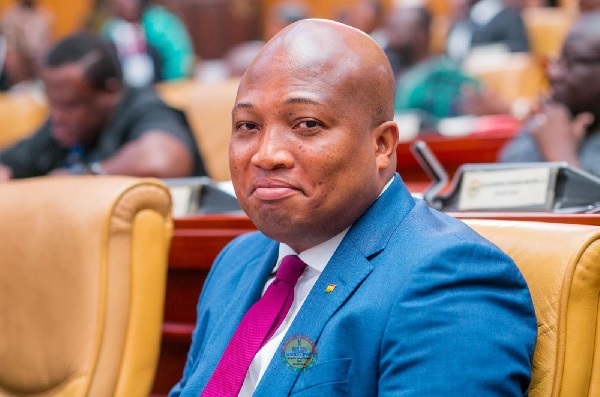Minister for Foreign Affairs, Samuel Okudzeto Ablakwa, has defended the Mahama administration’s decision not to submit its understanding with the United States on third-party deportees for parliamentary ratification.
In a heated confrontation on Wednesday, triggered by a question from the Ranking Member of the Foreign Affairs Committee, Samuel Abu Jinapor, who demanded clarity on the legal foundation, security implications, and national interest considerations underpinning the arrangement, Ablakwa insisted that the arrangement poses no threat to national security or sovereignty.
“Such matters are handled in coordination with the appropriate security and immigration agencies to ensure Ghana’s sovereignty, security and international responsibilities remain fully protected,” he said.
Also read: Felix Kwakye Ofosu defends 2026 budget: NPP left economy in shambles
He added that the government remains fully committed to Ghana’s peace and stability, stressing that the foreign policy machinery continues to operate in the country’s best interest.
Abu Jinapor, however, questioned why the minister had not submitted the understanding for approval under Article 75(2) of the Constitution and the Supreme Court’s decision in Bamfo v. Attorney-General, which held that even non-binding instruments such as note verbales require parliamentary ratification. He argued that the government was ignoring a clear constitutional requirement.
Hon. Ablakwa maintained that the arrangement with the U.S. is not a treaty, describing it instead as an exchange of notes, and therefore not subject to parliamentary approval.
“It is not a binding agreement. We can walk away from this at any time, and the Attorney-General has advised that such understandings do not require parliamentary ratification,” he asserted.
He warned that requiring parliamentary approval for every non-binding diplomatic understanding would cripple the country’s foreign policy operations. “We enter into about 50 MOUs a day. If we were to bring all non-binding instruments to Parliament, it would be impractical,” he added.
The Ranking Member further queried what tangible benefits Ghana would receive by agreeing to host third-party deportees.
In response, Ablakwa said the arrangement is purely humanitarian, rejecting suggestions of any financial incentives.
“The Government of Ghana has not requested any monetary, logistical or material support. This is purely on humanitarian grounds as a Pan-Africanist nation,” he said.
He stressed that the deportees in question are fellow West Africans.
“These are fellow West Africans detained and treated shabbily. Ghana cannot look on. Ghana is their home. West African nationals do not need visas to enter Ghana anyway and may stay for at least 90 days. So this is in line with regional integration,” the minister added.


